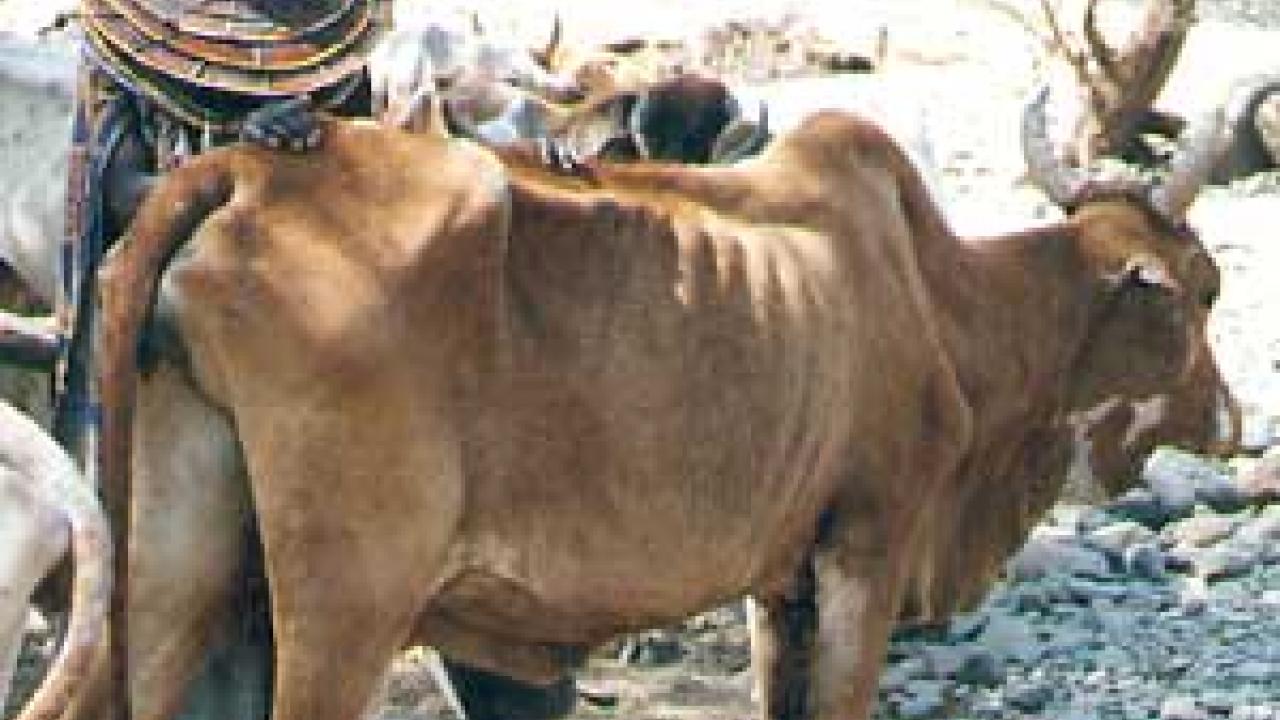An $18 million grant from the U.S. Agency for International Development has been awarded to a research organization based at the University of California, Davis, that focuses on international agricultural and environmental issues in developing countries.
The grant will support research intended to provide the world's most needy nations with the information they need to develop economically.
The funds will finance for five years the work of the Global Livestock Collaborative Research Support Program, which will coordinate 11 core research projects in Africa, Central Asia and Latin America that deal with economic growth, human nutrition, environment and public policy. These projects represent activities in 15 countries and involve 17 U.S. universities, eight host-nation universities, as well as national and international agencies and non-governmental organizations.
"Our overarching goal is to develop enduring buffers for poor people living in marginal environments around the world," said Montague Demment, the principal investigator on the grant and director of the Global Livestock CRSP program. "These are people whose lives are continuously threatened by the unpredictable effects of climate, globalization, fluctuating markets, conflict, diminishing resources and disease.
"Livestock production is one of the few rapidly growing market sectors in which poor, rural people can participate, even if they lack land, capital and education," he added. "We are confident that through collaborative, international research efforts we can help boost economic growth, improve human health and nutrition, minimize the environmental impacts of livestock and guide development of appropriate public policies."
Demment noted that addressing poverty is one of the three pillars of the United States' national security strategy.
"Efforts like the global livestock program, which is funded by the U.S. Agency for International Development, facilitate development, remove poverty and increase stability in places where, in their absence, extremists provide a seemingly viable alternative," he said.
Global Livestock Achievements
During the past five years, two projects exemplify the potential of the global livestock program for improving the quality of life around the world.
One project, based in Kenya, examined the possibility of improving children's growth, cognitive development and physical activity, by improving their micronutrient status through animal-based foods. The researchers discovered that the addition of a small quantity of meat and milk to the daily diet of school-age children eliminated severe vitamin B-12 deficiency. Meat alone significantly increased their cognitive abilities, leadership behaviors, physical activities and muscle mass. The increase in cognitive function could have huge implications for national development in many countries where large numbers of children suffer from micronutrient deficiencies. For example, micronutrient deficiencies affect at least 50 percent of the children in sub-Saharan Africa.
The researchers are making these findings available to policy-makers and development agencies for use in evaluating what types of intervention -- such as school feeding programs -- are most effective. This project was coordinated by researchers at UCLA and UC Davis.
A second successful project linked high-tech communication systems, satellite monitoring and analytical systems to provide livestock herders in East Africa with an early warning system. The project equips these herders with the data they need to make timely management decisions in preparation for potential crises such as drought, flood, shortage of forage, disease, conflict and adverse market forces. In addition to adding stability to livestock production in those developing nations, the system also can be adapted to provide better forecasting of conditions for ranchers in the United States.
Current Research Projects
One of the current global livestock projects, co-directed by Marion Jenkins, a research engineer in UC Davis' Department of Civil and Environmental Engineering, is focused on developing a long-term watershed study of the Njoro River, the main source of water for Kenya's Lake Nakuru National Park. The world famous Rift Valley lake is threatened by long-term decreases in the quantity and quality of water coming from the Njoro. The watershed project addresses both the biophysical and socioeconomic issues affecting the watershed. It also is designed to develop the capacity of Kenyan universities and governmental institutions to more effectively manage water issues, which are among the most important challenges facing the developing world.
The global livestock program's 11 continuing projects also include research aimed at:
- increasing the availability of meat and milk for children in Nepal;
- building the capacity of African institutions to conduct scientific research;
- increasing the availability of micronutrients via meat and milk products in the diets of children in rural Ethiopia and Kenya;
- adapting a technology that uses satellite remote sensing and ground measures to improve the market access for livestock owners in Mongolia; and
- developing a collaborative relationship between the Serengeti and Yellowstone national parks to improve the management of both parks and their ecosystems, and improve the lives of the people around the parks, especially those who depend heavily on livestock.
The global livestock projects are headed by researchers at UC Davis, Texas A&M University, Utah State University, University of Wyoming, Syracuse University, Montana State University, University of Wisconsin-Madison, Iowa State University, Oklahoma State University, New England Medical Center at Tufts University, Cornell University and Purdue University
The Collaborative Research Support Programs were developed in the late 1970s by the U.S. Agency for International Development to mobilize U.S. universities to solve food-security problems in developing countries. Demment estimates the Global Livestock CRSP has garnered more than $75 million in research funding since it was established. More information about the UC Davis-based global livestock program is available online at http://glcrsp.ucdavis.edu.
Media Resources
Pat Bailey, Research news (emphasis: agricultural and nutritional sciences, and veterinary medicine), 530-219-9640, pjbailey@ucdavis.edu
Montague Demment, Agronomy and Range Science, (530) 752-7577, mwdemment@ucdavis.edu
